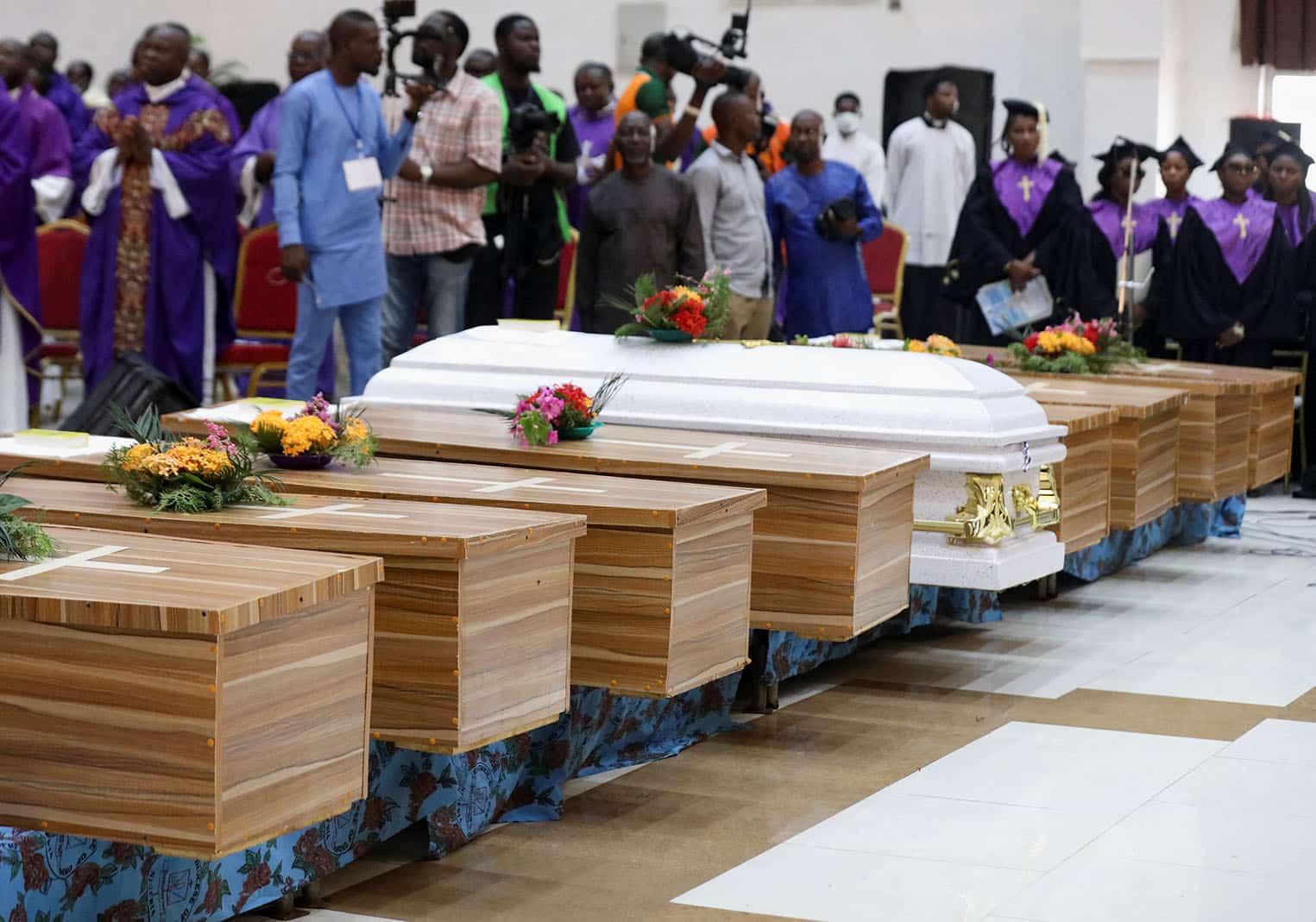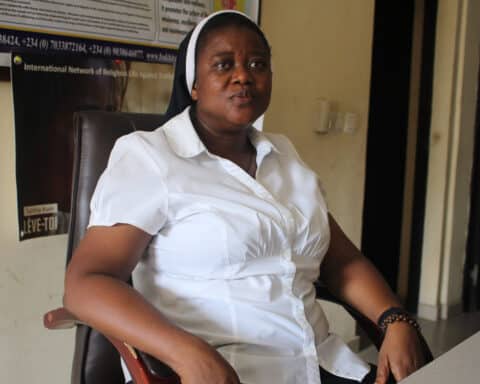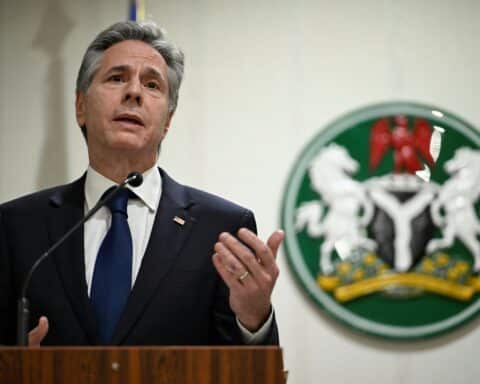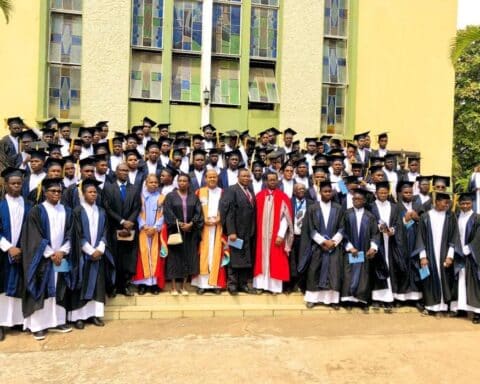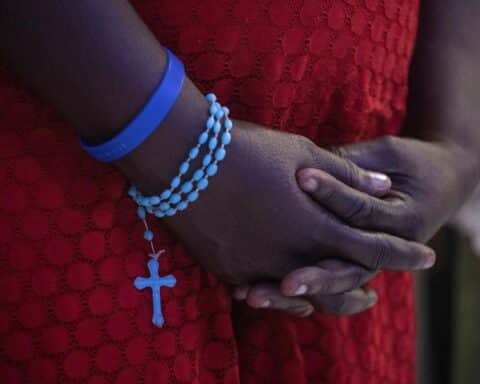In a recent communiqué, the Catholic Bishops of the Ibadan Ecclesiastical Province made an urgent and heartfelt appeal to all Nigerians, encapsulating a wide range of concerns that touch upon the very fabric of the West African nation’s well-being. This message sheds light on the dire circumstances Nigeria finds itself in while also offering hope and calling Nigerians to collective action.
The bishops begin their message with a note of gratitude and hope. It’s a reminder that a new Lenten season carries with it God’s promises for a hopeful future (cf. Jer 29:11). “His love does not fail, especially when we obey his commandment of love and live in righteousness,” the bishops write. This perspective is not one of naive optimism, but that of Christianity. Our faith embraces trials as pathways to developing perseverance and character (cf. Rm 5:3-5). And the bishops’ words are a clarion call for resilience amid adversity that should inspire us all.
Spiral of violence
The bishops mince no words in describing the current state of their nation. Nigeria, in their eyes, is a ship floundering in storms of insecurity, economic hardship and failures in governance. They vividly describe Nigeria as a “hostile killing field” where daily life has become an ordeal for many. The bishops are deeply troubled by the pervasive suffering and loss of hope among the populace and are trying to raise awareness of that suffering on the global stage. Nigeria is currently ranked number six on the World Watch List compiled by Open Doors, an international Christian organization that tracks global persecution. (In 2020, Nigeria was ranked number 12, demonstrating how the situation has escalated in just a few years.) The same organization reported that 90% of the more than 5,600 Christians killed for their faith last year were from Nigeria. The bishops’ call for urgent action from governmental leaders to save Nigeria from further distress is both a plea and a moral imperative.
90% of the more than 5,600 Christians killed for their faith last year were from Nigeria.
Highlighting the spate of violence and bloodshed, particularly in their ecclesiastical province, the bishops lament the assault on traditional values and the sanctity of human life. “We declare that the time to stop this spiraling violence and bloodshed is now, before it becomes irreversible, by repositioning our security agencies to make them more pre-emptive and proactive,” they write. The mention of recent kidnappings and killings is not just a recounting of events but a somber reflection on the descent of Nigerian society into chaos. Their tribute to the sacrifices of security personnel underscores the bishops’ recognition of the complex challenges in restoring peace and security.
Complacency and corruption
The bishops’ critique extends to the leadership of the country, calling out the complacency and corruption that have exacerbated the nation’s woes. “Things are not under control when continuously, Nigerians get maimed, kidnapped and killed daily on our roads and even in their homes,” the bishops declare. Their message is a demand for integrity, accountability, and transformative leadership that prioritizes the welfare and dignity of all Nigerians. The emphasis on truth, upright governance, and the moral disgrace brought about by sin (cf. Pv 14:34) serves as a reminder of the virtues needed to steer Nigeria back to prosperity and peace.
This past Christmas, in an appeal following the Angelus on Dec. 31, Pope Francis implored prayers for Nigeria after a violent attack in the State of Plateau, which took the lives of many victims. “May God free Nigeria from these atrocities!” the Holy Father prayed.
We cannot remain indifferent to the sufferings of Christians throughout the world. We need to continue to be informed, particularly by the leadership of the local bishops of those nations. When they speak out, we should listen.
The bishops conclude with a call to intense prayer for Nigeria, aligning with Pope Francis’s declaration of a Jubilee of Prayer. This appeal to divine intercession is a profound expression of faith in the power of prayer to bring about peace and healing to a nation in desperate need of restoration. Our response begins in prayer.
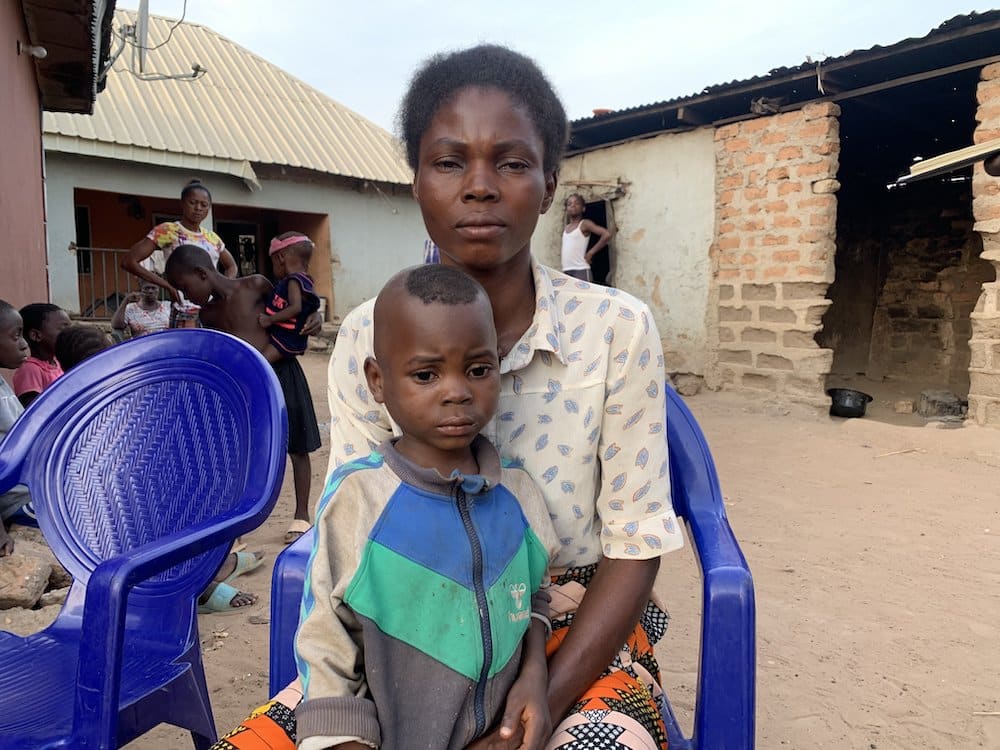
But during this Lenten season we have another opportunity. Catholic Relief Services, which conducts the annual Lenten Rice Bowl campaign, provides emergency food, shelter, water and more to internally displaced persons. Millions have been displaced by internal conflicts. By giving generously to this campaign, we can support Christians in need in Nigeria, and in countless other places around the globe.
In echoing the bishops’ communique, we amplify their message of hope, responsibility, and urgent action. We call on all Christians — leaders and citizens alike — to reflect, pray and act toward the realization of a peaceful, prosperous and righteous nation.

